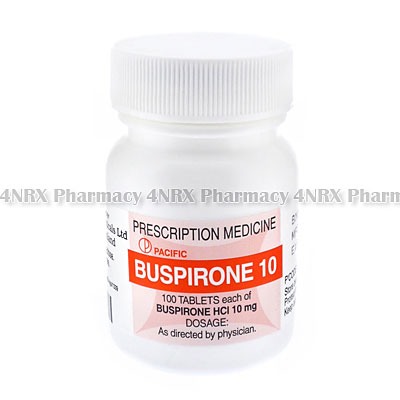 |
Home  Antidepressants Antidepressants  Buspirone Hydrochloride Buspirone Hydrochloride |
|
|||||||||
|
Buspirone Hydrochloride
What is Buspirone Hydrochloride used for? Buspirone Hydrochloride is an anti-anxiety drug that works by affecting natural substances in the brain known as neurotransmitters. It is effective in treating the tension, dizziness, pounding heartbeat, trouble sleeping and perspiration caused by anxiety. This helps the patient to relax and worry less, which in turn allows them to take a more active part in everyday life. How should I use Buspirone Hydrochloride? Buspirone Hydrochloride tablets should be taken orally, with or without food. Adult patients are sometimes directed to take one tablet 2 to 3 times per day, however patients should always consult their physician before taking this medication so that the correct dosage can be prescribed to them. It is important to note that when patients first start taking this medication, their symptoms may deteriorate before they improve. It can take up to a month for the full benefits of this medication to be noticed by the patient. What are the side effects of Buspirone Hydrochloride? Some side effects which may occur as a result of taking Buspirone Hydrochloride include:
Consult your physician immediately if any of these side effects persist or worsen, or if you notice chest pain, breathlessness or a fast pounding heartbeat. In rare cases, this drug has been known to cause a condition known as tardive dyskinesia. Consult your physician immediately if you notice uncontrolled movements of the body, especially the face, mouth or jaw. Please Note Strictly follow all instructions provided to you by your physician or pharmacist while using Buspirone Hydrochloride. Optimum and safe dosage can differ based on the patient and the condition being treated. As this medication may be unsafe for certain patients, it is essential you always inform your physician if you are pregnant or breastfeeding, as well as if you have any allergies, other illnesses, or ongoing health conditions, and if you are taking any other form of medication, supplements, or herbal products. Immediately seek emergency medical care if you have any allergic or hypersensitive reaction. Common signs of a reaction include hives, swelling, skin rashes, chest pains, as well as trouble breathing or swallowing. 

|
|||||||||||||||||